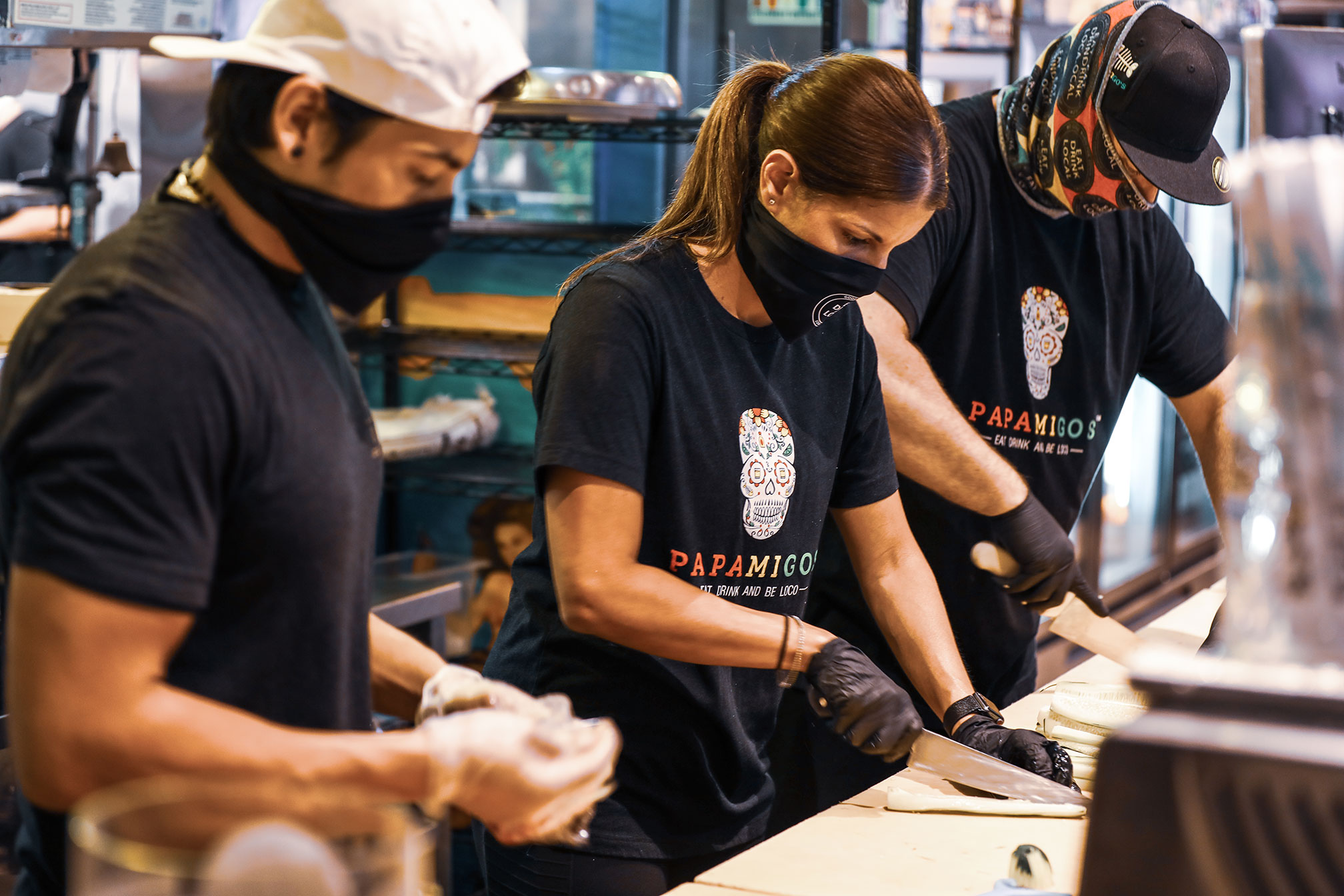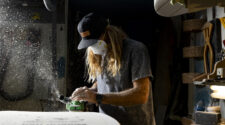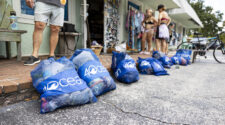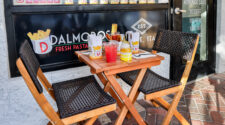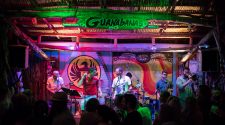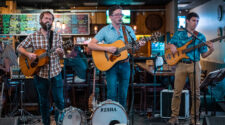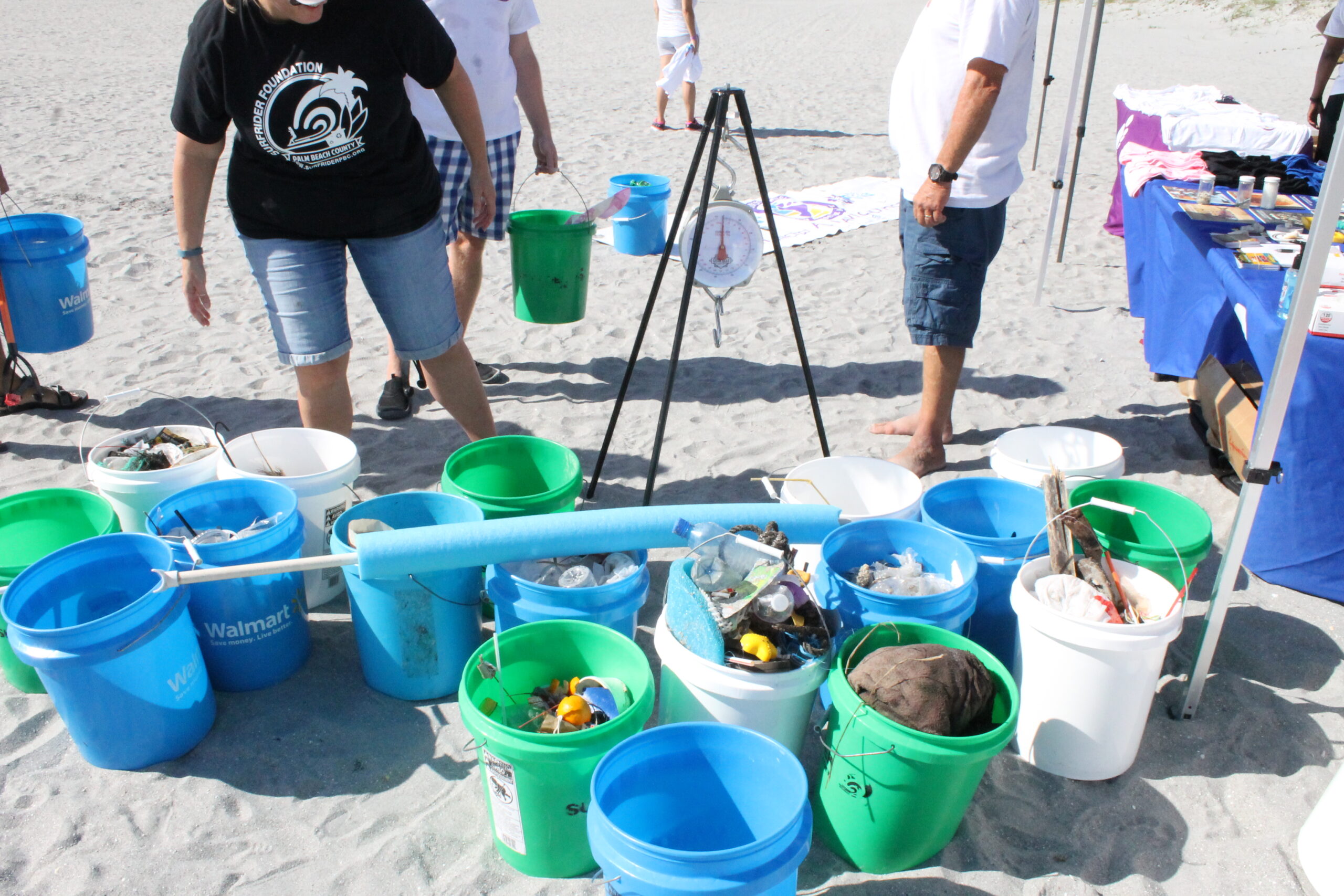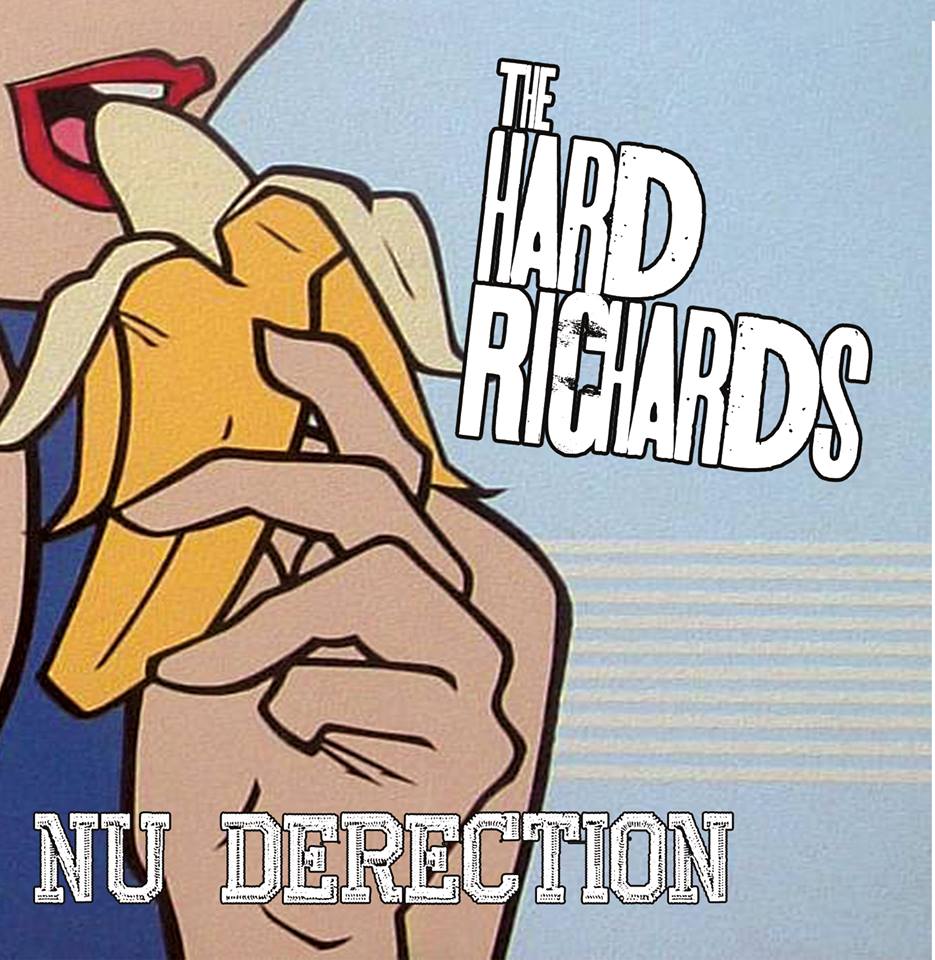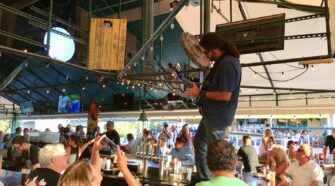When it became apparent that the coronavirus was going to hit the States, no one really knew what was going to happen. For small business owners, and specifically local restaurant owners, the focus went immediately to losing business, what to do with employees, how the hell to survive the year with missing peak season, and how long can the doors be shut and the restaurant still stay alive.
Even though all restaurant owners were dished out the same awful plate of COVID chaos, the outlook and opportunities that happened in each dining room, bar space and parking lot brought everyone together.
By Darien Davies
RIDING THE WAVE
To say that COVID couldn’t have happened at a worst time would be the understatement of the century. The governmental restrictions, including social distancing and quarantining, were in full effect in mid-March, which was not only season, but peak season in Palm Beach County. Most restaurant owners were drooling for the crazy amount of business that was about to happen in the next two months that would help them last through the slower summer months. But, instead of a full book of reservations, they had zero people and zero idea of what to do.
“We’re virtually running a new business, with one day to open and no money to market and grow it,” said Mike Goodwin, owner of Crazy Uncle Mike’s in Boca Raton, Fla. who was able to keep his core staff but had to temporarily layoff the majority of his front of house and back of house crew.
This was the same case with Anthony Barber and Troy’s Barbeque. Not only was Barber seeing great growth at his established Boynton Beach location (with a convenient drive-thru), but business was also picking up at his recently-opened Boca Raton location.
“I was looking forward to season in Boca, eagerly looking forward to season,” said Barber, who’s proud of outlasting other restaurants that occupied his same Boca location. “We’ve been there a year now…being there for a year was amazing, to be honest. But missing season is like missing Christmas when it’s in Boca.”
So when Barber was forced to close the majority of his operations and lay off 38 of his 60 employees, he got to work, as crazy as that sounds. He began with seizing the opportunity to view his business and management team more clearly, continuing movements to get the most use out of his products and using the full potential of each employee.
He was also able to join a huge giving-back movement by partnering with Rodney Mayo and the Hospitality Helping Hands (H3) mission. To date, he and his team have helped to cook and distribute food on a level that surpassed even a busy day in their restaurants.
“I felt bad about having to cut down [labor], so I had the opportunity with H3 to bring staff back to do the charity work. Once we were able to do that, I could bring back everyone and even hire some more folks. That afforded some different opportunities to do some different things,” said Barber.
WHAT. THE. F.
If you gave Rodney Mayo the option of cutting off his foot or laying off his employees, he probably would have told you to take both feet. The owner of Sub-Culture Restaurant Group decided that he couldn’t just close his doors and wait to see what happened, so he founded the Hospitality Helping Hands non-profit and opened up one big to-go dining room (and eventually more) where everyone was invited.
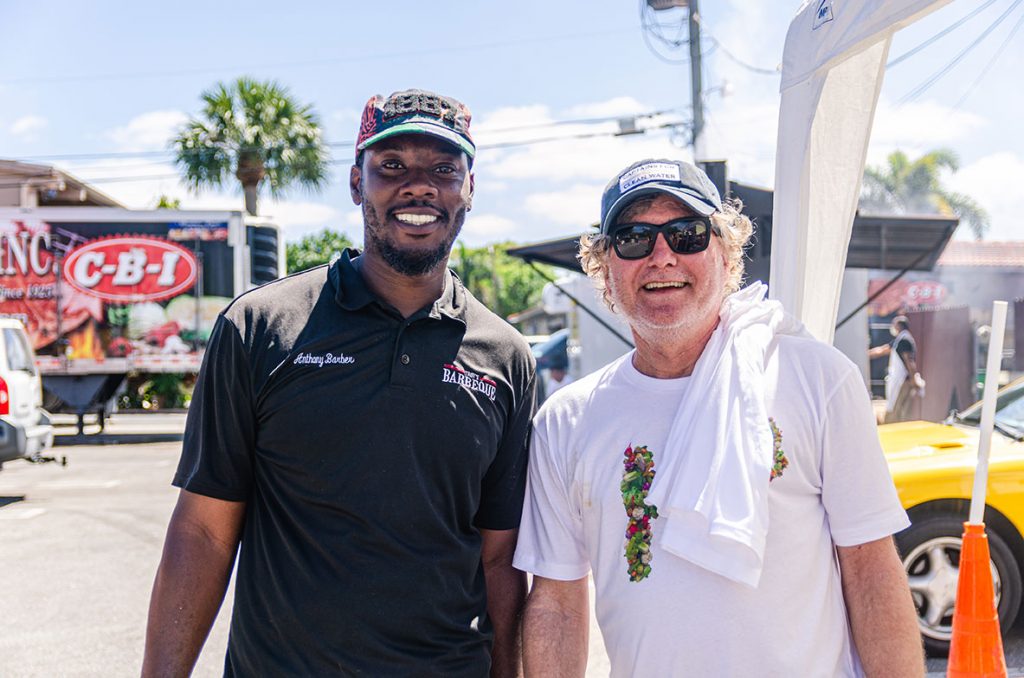
“Last Friday I had the worst day of my life. I had to lay off 650 employees, which equates to 1,800 family members. So everyone lost their income as of Sunday,” said Rodney Mayo at the West Palm Beach City Commission meeting on March 23, 2020. “I was bombarded with questions of ‘What do we do? Where do we go? Where do we find money?’ I had no answers for them for the first time. I just promised them, I said, I can’t promise you anything because I don’t know what’s going on, but I will promise you that you will never go hungry.”
In its first days, H3 distributed more than 12,000 free meals to hospitality workers, their families, local charities, and others in need at their pop-up food distribution center located at Howley’s Restaurant in West Palm Beach, Fla. To date, they’ve donated more than 250,000 hot meals at seven distribution stations, and helped re-employ 82 hospitality professionals.
Other restaurant owners made immediate changes of their own, with the goal of powering through and looking for the light at the end of the virus-laden tunnel. Due to the fact that Gov. DeSantis allowed restaurants to sell packaged beer and liquor, Goodwin and his team were able to sell cocktail packages and growlers of beer in addition to their pick-up and delivery food sales since the beginning of the restrictions.
“Our takeout and delivery was .4% of total sales, and right now we’ve gotten it up to over 15% of what we did last year in that category. It’s a great success story,” Goodwin said about his initial business changes.
RESERVATIONS ABOUT RESTRICTIONS
A little further south, the team at Papa’s Raw Bar was not only moving quickly, but also thinking strategically.
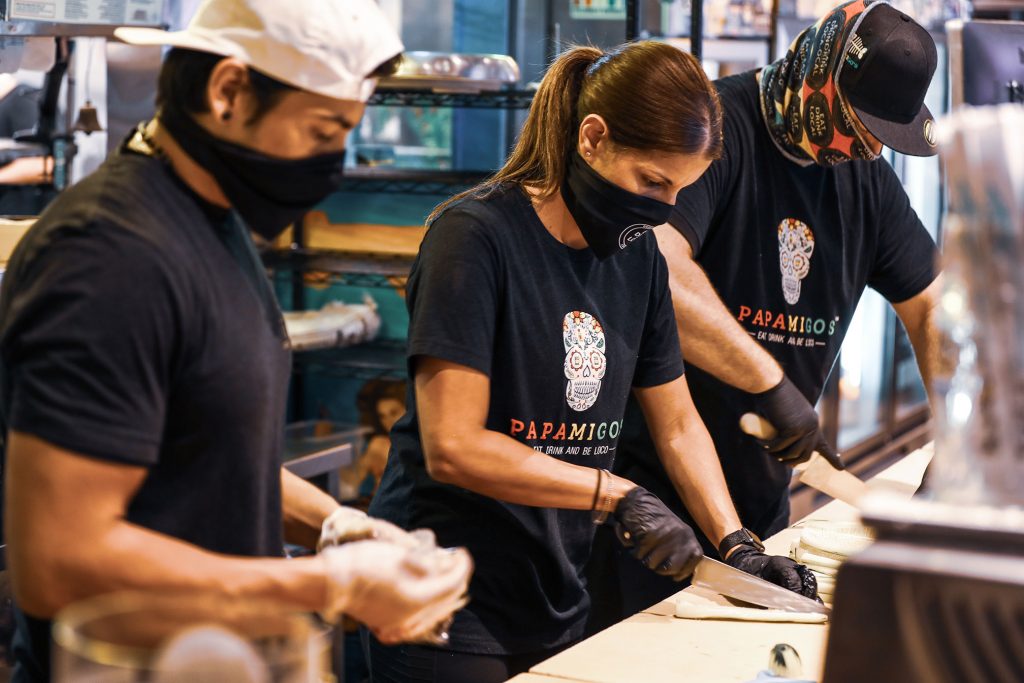
“It’s kind of ironic coming into this year because we’ve always been about revenue and jamming in 15 pounds of shit into a 10 pound bag. But if you take a step back, it doesn’t look great, so we really wanted to focus on getting lean,” said Troy Ganter, founder of Papa’s Raw Bar in Lighthouse Point, Fla. who was about three seconds away from opening up five more raw bars pre-COVID. With this eye-opening and “profound” option of taking a step back, they’re going to instead focus on their two core companies. “It’s all about your DNA, culture, story, and impact on locals and your team. You’re only as strong as your system, whether that’s family or work. We needed to focus on the systems more, get lean and be more streamlined. We got too big and got involved in doing too much because it’s hard saying no to people. We kind of joke about it but this whole pandemic forced change. It put a gun to our head.”
To handle the immediate COVID changes that began in March, Ganter and his now 15-person team served hungry guests from 12 to 8 p.m. daily for take-out orders only. Instead of their standard two menus with 700+ ingredients, they instead opted to provide the freshest, leanest and cleanest seafood in town from a small fresh market menu and a small fresh kitchen menu. Ganter also said that he’s focusing on making their Serve Safe efforts “next level,” and that the future of the restaurant industry is going to be different and life-changing for everyone involved.
“Things were changing so quickly in the middle of March as the virus was spreading across the country. At first we were told that we needed to reduce our capacity by 50%, which we did immediately both inside and on our patio. It was only a few days later that the Governor of Florida decided to close all restaurants for dine-in service and only allow curbside or delivery,” said CJ Nickoson, general manager of JB’s on the Beach. “At that point we were forced to close our doors. Our concept is not one that translates well to take-out so we didn’t believe it would be a good representation of our usual JB’s experience that our guests have grown accustomed to over the last 18 years. At this point we were all hoping that the closure would only be for 17 days.”
But, as we all know, it lasted for much longer. He and his team are making the best of the situation, and remain committed to providing an elevated guest experience, regardless if the guests can’t see their smiling faces underneath their masks. They have adjusted their reservation system to accommodate the new socially-distanced seating arrangement so they’re able to not only maximize their reservations but also streamline the flow of guests as much as possible.
To make matters better, they have also gone tremendously above and beyond the call of COVID duty by instituting safety measures so everyone who enters the restaurant feels as safe as possible. This includes, but is certainly not limited to, taking all guests’ temperature before they enter the building, requiring absolutely everyone to wear a mask (and will even provide masks if someone doesn’t have one), logging contact information for one person in every group that enters the restaurant, sanitizing all tables and chairs after each use as well as common areas of the restaurant, using throw-away menus only, texting guests on the wait list instead of using their pagers, not using any common use condiments, and more.
For Nickoson, the measures are well worth it, saying “Our recovery has been slow and steady. Week over week, sales continue to improve. We are very thankful for our guests that continue to support restaurants and the hospitality industry.”
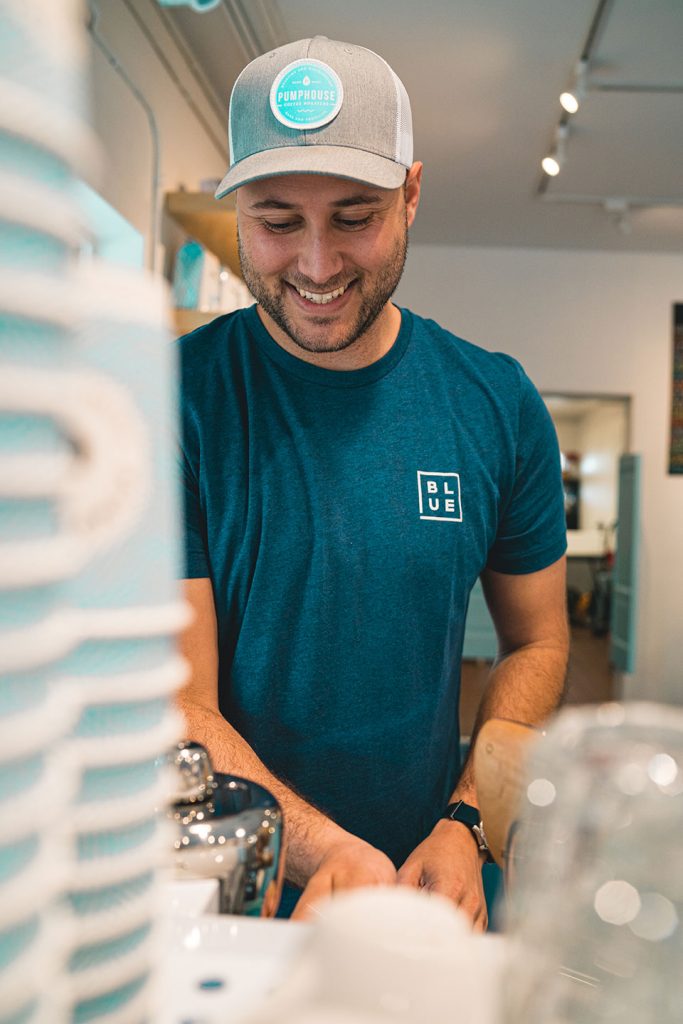
IT’S A BREAK, NOT A BREAKUP
While some restaurants and local eateries were able to keep moving and shaking in some capacity, other’s didn’t have the same opportunity.
Pre-pandemic, Pumphouse Coffee Roasters owners and brothers Christian and Alex Le Clainche were on a caffeine high running their go-to local coffee roaster storefronts at Grandview Public Market and recently-opened Cones & Coffee in Jupiter.
“Going from jamming full throttle in terms of really doing well on the retail side to all of a sudden coming to a screeching halt was the biggest reality check for any business.” Christian said. “It went from a week of operating with minimum sales to all of a sudden having to make the call of suspending operations at our two retail locations until we get through the thick of this.”
So they used the quarantine time to pivot their focus and ramp up their online store, which was something that was on the back roaster for quite some time. Now, you can easily purchase their beans whole or at a specific grind, cold brew, and a variety of merchandise on their website.
“So far our return to operations has been a little rocky to say the least. It’s great to be open and to resume serving our awesome customer base; however, all of the uncertainty surrounding the virus and its potential second wave spike have made the retail climate very eerie,” Christian said. “As a business owner, my biggest concern is the health and safety of our patrons and staff. We have continued to be as proactive as we can with enforcing social distancing measures and safety practices, but ultimately our goal is to provide an outlet for our customers to get delicious coffee that hopefully provides a quick sense of normalcy.”
THE COMEBACK
While we might have all learned that we actually do know how to cook (or defrost), and can actually survive without happy hour jaunts and brunching every weekend, it feels damn good to be able to get back to our must-have eateries. But, just remember that our favorite restaurant workers are still dealing with food shortages, limited coworkers, and managing new safety protocols.
Barber asks that when you support his business, or any local small business, just be kind. “Say nice things. Man, we had to let people go. We’re short-staffed. It’s difficult to navigate this world,” Barber said. “We’re short on supplies and you’re coming in our restaurant and you’re mad we don’t have this or that. We’re all trying to do the best we can; we, the mom and pops.”
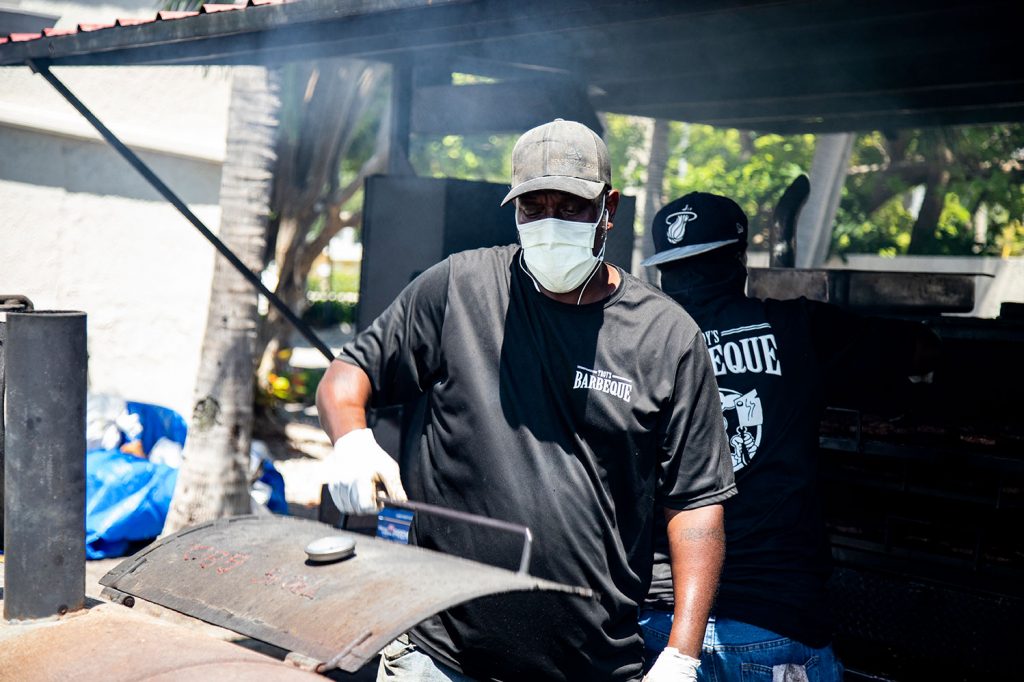
On top of that, just giving the restaurant workers a chance to serve you again by having a meal with them is the best way to show your support. “We really appreciate the people who are venturing out and giving us a chance to serve you,” Nickoson said. “We take that opportunity very seriously and understand that during these times it can be unnerving going out to a restaurant. We are glad you are here and we will do everything in our power to make sure you have a great experience.”
Especially with the current ups and downs of the imposed restrictions and safety mandates, opening back up and getting back into the swing of things isn’t as simple as it might sound. But, that’s where business diversification plays a key role in helping not only the local eateries survive, but also keeping us locals sane in an insane climate.
“We feel extremely lucky that we have been able to weather the initial hit of the business shutdown, but the recovery looks like it may take a lot longer to bounce back then initially forecasted,” Christian said. “We are confident that the specialty coffee market will continue to grow in South Florida even during these uncertain times. As such, our goal is to create a broader access to freshly roasted specialty coffee as consumers shift their focus toward making a great cup of coffee at home.”
If you are able and feel comfortable, get out there and show your local restaurants and service industry professionals some love. They are, after all, just like every one of us: people who are trying their best to weather a pandemic.
“We’re reinventing ourselves, and the support has been tremendous. We don’t know what every day will face but we have a team of leaders who started working for nothing, but are now making more than they ever made. We’ve also been able to give back and help our first responders,” said Ganter, who, even through all of this, says their business continues to set records and grow. “Now we’re coming with a whole new plan to reopen. Our story is getting better and growing.”
So while it might be a work in progress, the overall outlook is hopeful. After all, everyone is eager to get back to normal, even if that’s a new normal.
